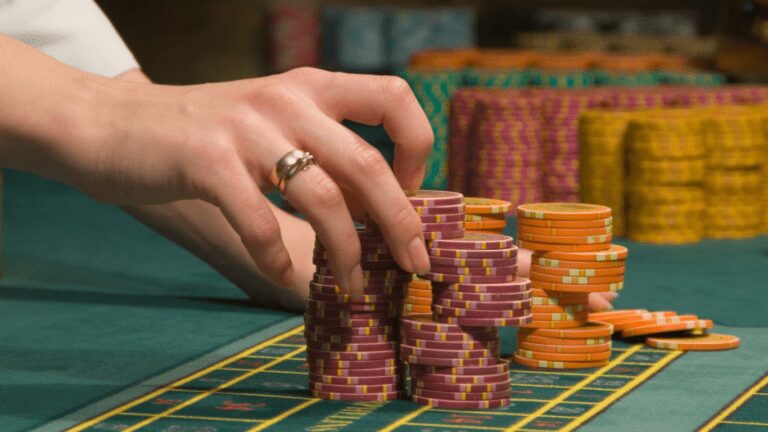I’ve always been fascinated by the fine line between luck and strategy in games. Whether it’s poker, chess, or even sports, there’s something thrilling about trying to tip the scales in your favor. But what if I told you that math and probability could give you an edge, transforming seemingly random outcomes into calculated decisions?
Overview Of Beyond Luck
Luck often appears unpredictable, but analyzing patterns through math and probability reveals its underlying structure. By applying these tools, I can identify trends and refine strategies across various games. Understanding concepts like:
- expected value
- risk assessment
- odds offers tangible advantages
Game-specific examples clarify this connection. In poker, calculating pot odds and expected value allows better decision-making for bets or folds. Chess strategy involves probability-based analysis of opponent moves to anticipate outcomes. In sports, statistical models predict player performance or team success.
Focusing on these mathematical principles transforms gameplay from reliance on chance to skill-based mastery. Techniques like probability mapping and statistical tracking help me plan moves strategically, reducing uncertainty and increasing control over outcomes.
Key Themes And Concepts
Mathematics and probability play essential roles in gaming strategy, converting instinctual decisions into calculated moves. They help break down complex scenarios into measurable elements, guiding players toward optimal choices.
The Role Of Math In Strategic Thinking
Math forms the foundation of logical decision-making in games. It enables players to quantify risks, calculate potential rewards, and identify ideal strategies. By applying concepts like optimization and combinatorics, I can assess multiple scenarios and choose moves that maximize my odds of success. For instance, in card games like poker, analyzing hand frequencies and calculating pot odds lets me decide whether to bet, fold, or raise based on statistical advantage.
Understanding Probability In Games
Probability provides insight into the likelihood of different outcomes, allowing for more informed gameplay decisions. By understanding probabilities, I can evaluate win conditions and anticipate opponents’ actions. For example, in dice games, knowing the chances of rolling a specific number guides my bets and strategic approaches. Similarly, in broader gaming contexts, predicting patterns from past results helps refine strategies, mitigate risk, and improve performance.
Insights Into Game Strategies

Math and probability refine gameplay by guiding decisions and minimizing reliance on guesswork. Strategic use of these tools transforms games into exercises of skill and logic.
Applying Probability To Decision-Making
- Probability frameworks enhance decision-making by quantifying potential outcomes.
- In poker, estimating the likelihood of drawing a winning hand helps decide whether to call, raise, or fold.
- Similarly, in sports betting, calculating odds ensures wagers align with potential returns.
- Using Bayesian reasoning, I update my strategies based on new information, allowing assessments to remain accurate throughout gameplay.
- These techniques reduce uncertainty and enable me to make precise, outcome-driven choices.
Balancing Risk And Reward
Analyzing risks and rewards improves strategy by identifying optimal trade-offs. Expected value calculations, for example, highlight whether a decision promises a net positive outcome. In chess, trading pieces involves weighing positional advantages against immediate material gain. In casino games like blackjack, risk management dictates whether doubling down is advantageous. By leveraging concepts like risk tolerance and payoff potential, I balance bold moves with conservative plays, ensuring consistent performance across varied scenarios. Proper assessment of risk and reward ultimately strengthens my ability to adapt and excel in competitive settings.
Practical Tips From The Book
Math and probability can shift gaming outcomes toward skill-based success. Understanding and applying these concepts isn’t complex when broken into actionable steps.
Steps To Apply Math To Your Game
Identifying situations where math applies to your game is key. I begin by analyzing the probabilities of specific outcomes. In poker, for example, I calculate pot odds to decide whether to call, fold, or raise. This involves comparing the bet size to the potential reward based on my hand’s chances of improving.
Next, I use expected value (EV) for decision-making. If a move has a positive EV, such as taking a calculated risk in blackjack, I prioritize it to maximize returns over time. Tools like statistical models help quantify EV, making complex calculations manageable.
Finally, I refine strategies by testing them against historical data or simulations. In chess, studying past games provides invaluable insights into patterns and probabilities for success in specific moves. Simulated environments help me practice identifying optimal decisions under varied conditions.
Recognizing Common Mistakes
Applying math to gaming often falters due to avoidable errors. One frequent mistake I see is overestimating rare outcomes. For instance, in sports betting, many players focus on high payouts from long-shot bets without factoring in the low probability of winning, which skews their strategy.
Ignoring sample size is another issue. I’ve noticed that small data sets can mislead players into faulty conclusions, like basing a poker strategy on a handful of sessions rather than long-term trends. Larger data samples provide a more accurate foundation for probability-based decisions.
Another pitfall involves miscalculating risks and rewards. Some players overlook potential losses when chasing gains, such as doubling down excessively in blackjack or sacrificing position in chess without clear advantages. Weighing risks consistently against potential returns ensures that decisions remain balanced and strategic.
















































































































































































































































































































































































































































































































































































































































































































































































































































































































































































































































































 As co-founder of CasinoMastermindx. Cecilla Pricetalker leads the vision and strategy behind the platform’s tech-focused content. With a deep understanding of casino innovation, software engineering, and iGaming trends, she ensures every piece reflects accuracy, innovation, and integrity. Cecilla’s leadership and technical insight make CasinoMastermindx.com a trusted source for forward-thinking gaming intelligence.
As co-founder of CasinoMastermindx. Cecilla Pricetalker leads the vision and strategy behind the platform’s tech-focused content. With a deep understanding of casino innovation, software engineering, and iGaming trends, she ensures every piece reflects accuracy, innovation, and integrity. Cecilla’s leadership and technical insight make CasinoMastermindx.com a trusted source for forward-thinking gaming intelligence.
